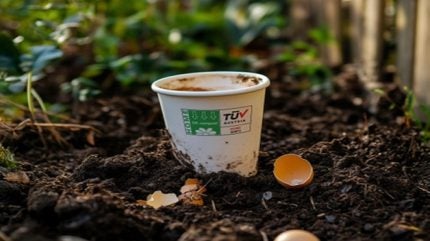
Metpack, a Turkish extrusion coating specialist, has introduced Ezycompost, a coated paper and paperboard featuring BASF’s ecovio 70 PS14H6 biopolymer for food packaging.
The biopolymer meets EN 13432 and AS 5810 compostability standards and is approved for food contact by the US Food and Drug Administration. It provides strong barrier properties against grease, liquids, fats and mineral oils.
Additionally, it withstands high temperatures, including exposure to boiling water up to 100°C.
Metpack sales and new project development vice-president Sühan Gürer said: “With Ezycompost, we can offer the food industry the best of both worlds when it comes to coated paper packaging.
“Its faster processing and home-compostability is a double advantage compared to coatings made of PLA [polylactic acid], which is industrial compostable only.
“This all enables the food packaging industry to differentiate their products without compromise on performance and quality as well as reach their sustainability targets.”
Ezycompost is designed to leave no persistent microplastics after disposal in home composting systems, the company said.
The product is targeted at paper packaging manufacturers and food brands seeking sustainable solutions.
Applications include cold and hot beverage cups, as well as trays and pots suitable for freezing or microwave use.
The coated paper is compatible with existing manufacturing lines. The coating is 40% thinner than PLA and supports higher production speeds.
The ecovio material is claimed to offer performance similar to polyethylene in terms of coating line speed.
It does not adhere to chill rolls and provides effective sealing and printing qualities. Processing can be done through mono- or coextrusion without additional adhesives.
Used packaging can be composted at home under applicable national regulations.
In addition to food packaging, ecovio is used in cling films, organic waste bags, produce bags, and agricultural films.
Last December, BASF collaborated with Endress+Hauser, TechnoCompound, as well as two universities in Germany to make advancements in the mechanical recycling of plastics.







